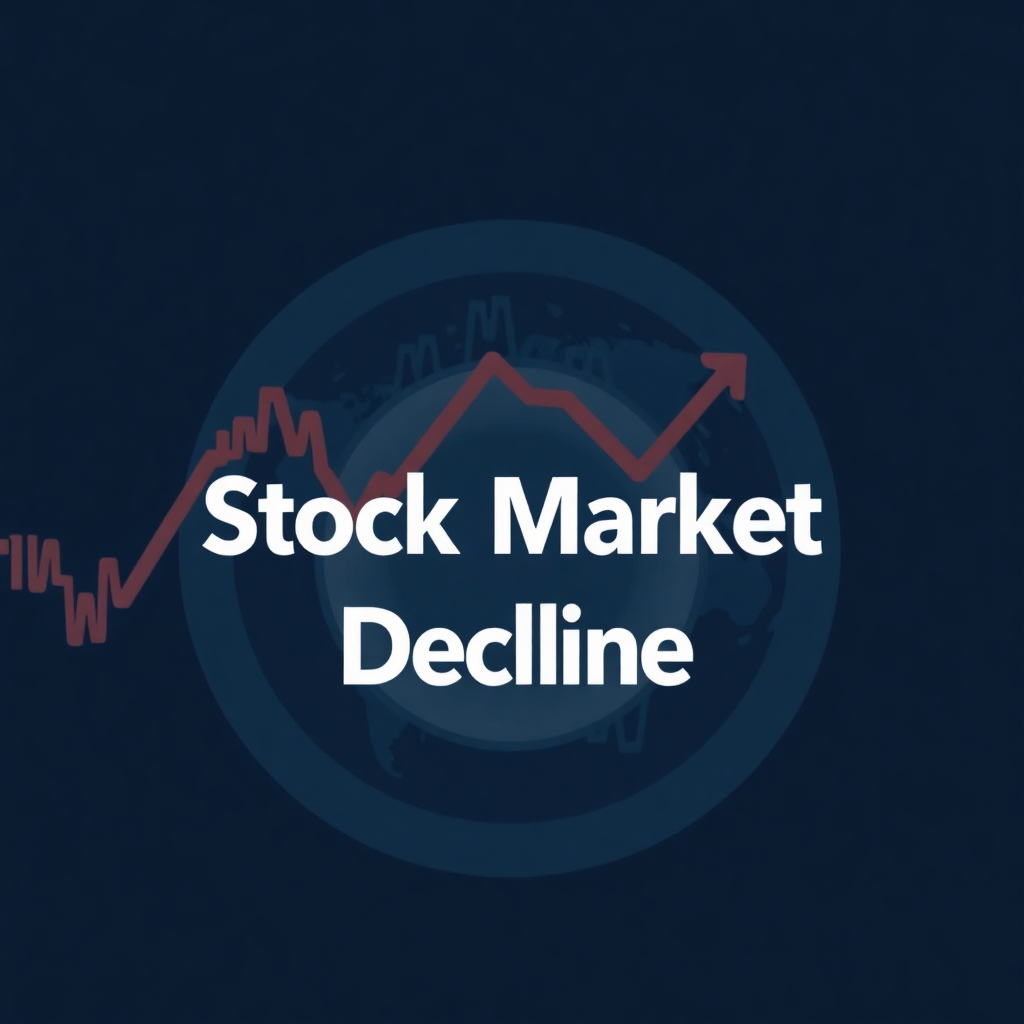Understanding Stock Market Crashes And The Recommended Strategies For Investors

The volatility in the US stock market over the past few weeks has intensified discussions about the possibility of another downturn or Stock Market Crash. Numerous investors may be contemplating their next steps or seeking ways to safeguard their portfolios. Innovest Global Wealth aims to deliver essential insights, but this should not be considered investment advice; it is solely for informational purposes.
What is a Stock Market Crash?
A Stock Market Crash is a rapid and substantial drop in stock values across all sectors of the stock market that results in a significant loss in investment portfolios and wealth.
The Stock Market Crash typically results from a combination of economic factors, widespread panic selling, and the prevailing mindset of investors who adhere to financial bubbles and speculation.
What is Happening now?
The main question that comes from investors who have made substantial investments in the US stock market or the S&P 500 tracker fund is that the majority of their portfolios have experienced a considerable decline in the past few weeks. The United States has a new President whose policies have both positive and negative effects on the stock market. Additionally, the Ukraine conflict is a factor. However, it appears that the majority of investor concerns are focused on the potential for a US trade conflict with China, Mexico, and Canada.
Lastly, a Federal Reserve pause in interest rate reduction is becoming more probable, as tariffs are anticipated to drive up short-term inflation in the United States. This is even more so given that inflation in the United States has been increasing from 2.5% to 3% since August 2024.
Is a stock market crash imminent?
Considering the current factors, should we anticipate a stock market crash soon? At Innovest Global Wealth, we hold the view that while possibilities exist, our analysis indicates that a market correction is significantly more probable than a complete market crash. A market correction is a short-term decline in stock prices, usually less than 20%, that is a normal part of the market cycle. On the other hand, a market crash is a sudden and severe drop in stock prices, often more than 20%, that can lead to a prolonged bear market. This observation is grounded in the historical trend that, typically, the stock market experiences an upward trajectory in two out of every three years. Both 2023 and 2024 have yielded outstanding outcomes. During this timeframe, the S&P 500 experienced a remarkable increase of 55%, while the Nasdaq 100 surged by an impressive 90%.
Investors should shift their focus away from concerns about market volatility, whether it be crashes, corrections, or movements in either direction. Instead, they ought to concentrate on developing a robust investment strategy that identifies quality stocks at attractive prices. For instance, stocks of companies with strong fundamentals and a history of consistent growth can be considered quality stocks. It's essential to understand which stocks to hold and for what duration while also ensuring a well-diversified portfolio that includes stocks, bonds, and other investment vehicles.
Investor Mindset During Stock Market Crashes or High Stock Market Volatility
It is instinctive to consider selling your holdings or position when the stock market experiences a slump, and your portfolio's value takes a significant hit. That is understandable, but perhaps not the best decision. Instead, a savvy investor must ask the following questions, "What actions should I avoid?" Our straightforward response is: Remain calm, Do Not Panic. The next question could be, "Is it wise to buy more stocks?" The response is that it may depend on the last question, "Am I prepared to expose my portfolio to a potential further or total loss?" The key consideration here is understanding your risk tolerance, which is the amount of risk you are comfortable taking with your investments. It's important to align your investment decisions with your risk tolerance to avoid making hasty or emotional decisions during market volatility.
Why Stay Calm and Avoid Panic Selling
Panic selling is a widespread selloff of a stock, a sector, or an entire market due to fear, rumour, or overreaction rather than reasoned analysis.
At Innovest Global Wealth, we advise our clients to know and understand their risk tolerance and how volatility or price swings will impact them before beginning any investment. This understanding will make investors feel more informed and prepared, reducing the likelihood of making hasty or emotional investment decisions.
Seasoned investors maintain calmness in such situations to prevent panic selling of stocks, which frequently leads to substantial losses during market slumps. This cements losses and hinders potential profits when markets recover. Nevertheless, stock markets are renowned for their tendency to rebound over time; hence, panic selling may transform a temporary market decline into a permanent loss. For instance, in the aftermath of the 2008 financial crisis, the market witnessed a significant downturn, leading to panic selling among investors. However, the market started recovering in March 2009, eventually surpassing its previous highs. This recovery highlights the calmness of experienced investors, who maintained their long-term objectives, resulting in exponential portfolio growth. Similarly, when the S&P 500 experienced a staggering 35% decline in just over four weeks in March 2020, it marked the stock market's entry into a bear market for the first time in 11 years due to the global pandemic. The S&P 500 index, despite the odds, displayed remarkable resilience, swiftly recovering from its lows and achieving record highs on multiple occasions since then. In 2022, the equity markets saw a decline from the peaks reached post-pandemic, with fluctuations continuing into 2023. However, during the initial six months of 2024, it achieved additional record highs, further instilling hope in the market's recovery.
What opportunities and stocks should investors consider in 2025?
At Innovest Global Wealth, we have been encouraging our clients to closely monitor Nvidia and Meta Platforms, two leading players in the technology sector. However, we understand that the best opportunities are often overlooked. Therefore, we encourage investors to read our next article, where we shall project the investment landscape for 2025. This will highlight which stocks, bonds, and alternative investments to consider, all while effectively managing risk. So, stay tuned for our next article!


